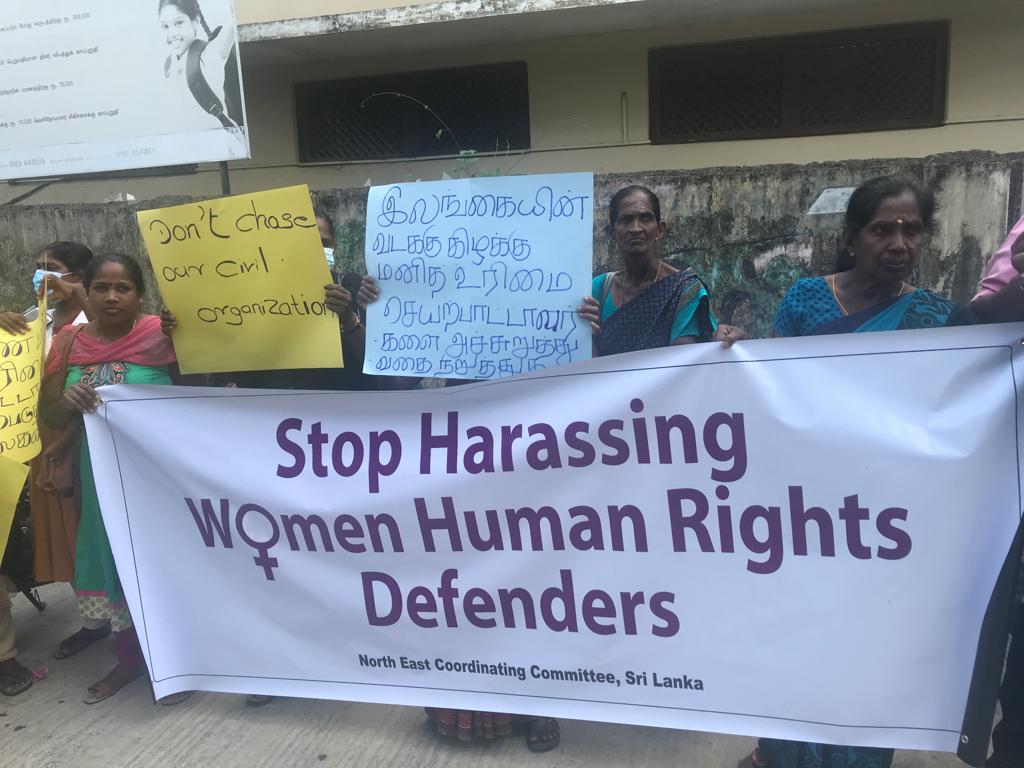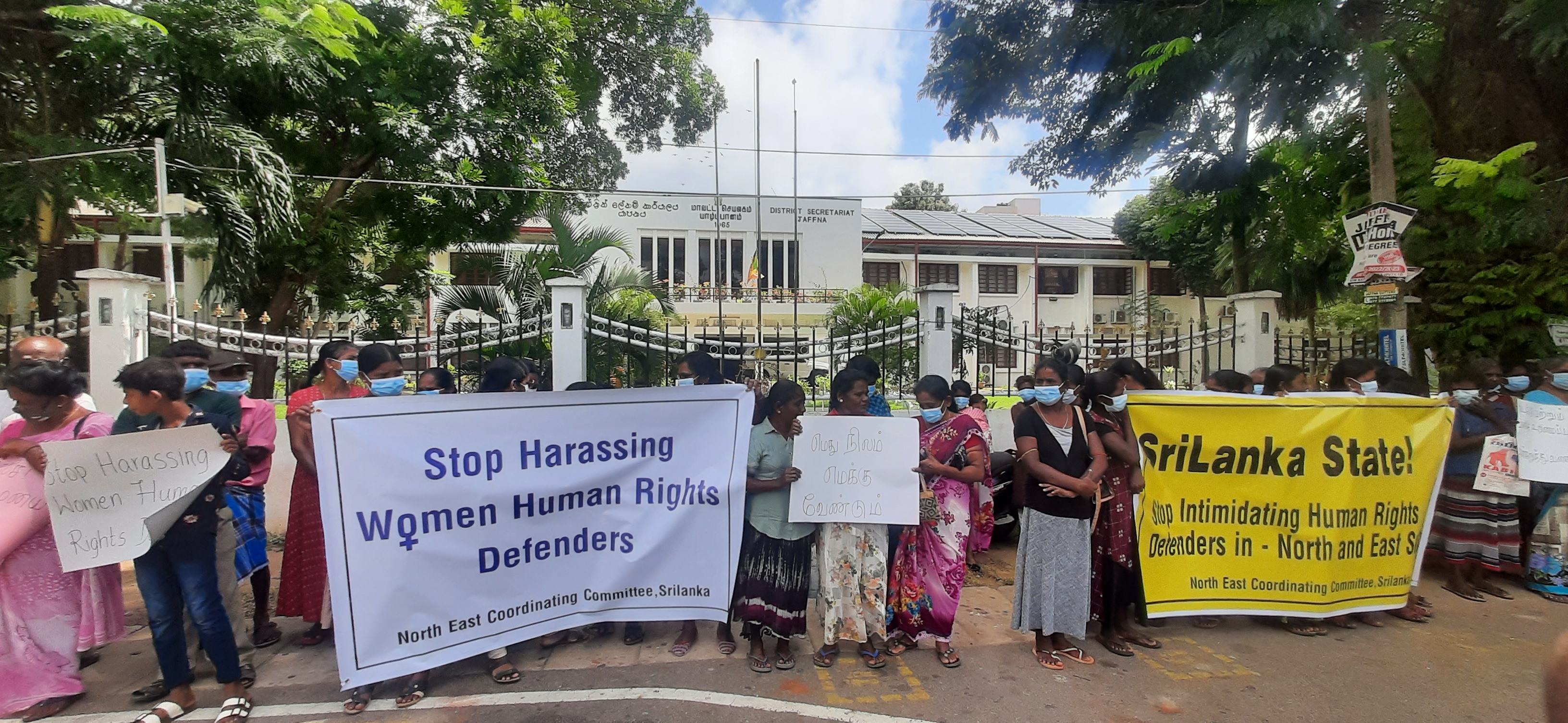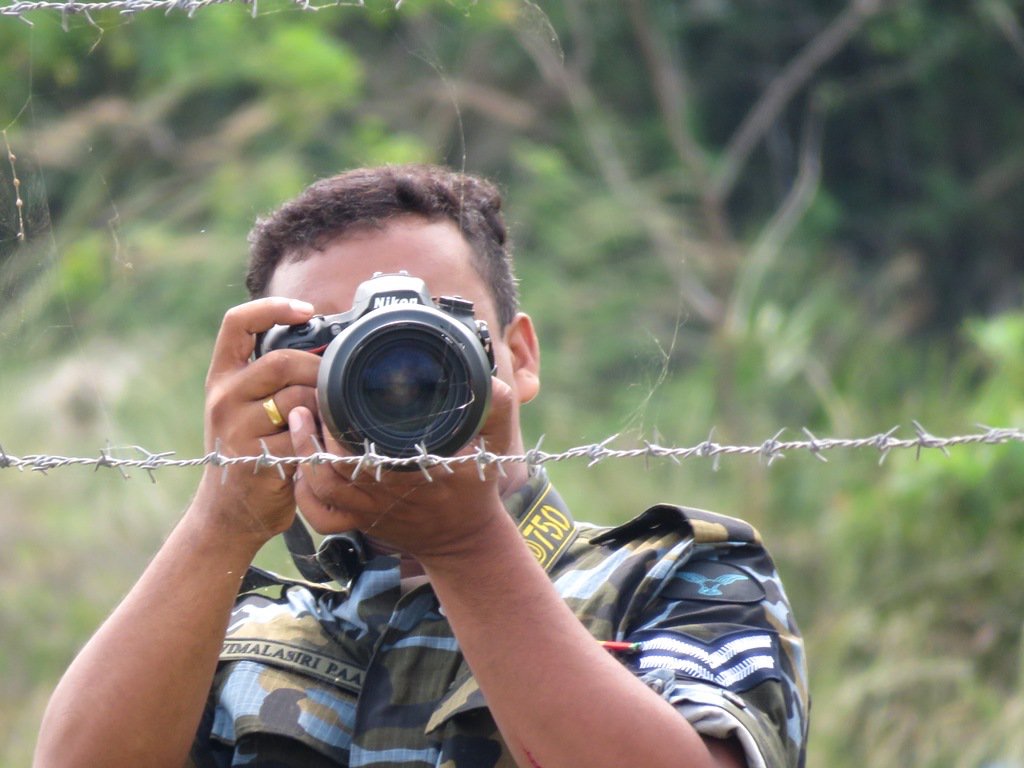
Amidst the 51st session of the UNHRC, a former Tamil MP and a former deputy chairman of the Eastern Provincial Council, have written an urgent appeal for UN Human Rights Council President Federico Villegas to take action to end the continued harassment of activists by Sri Lanka’s Terrorist Intelligence Department (TID).

This week has seen Tamil both in Sri Lanka and in Geneva reporting that they are continuously monitored and harassed by Sri Lanka’s security forces. In Batticaloa and Jaffna, demonstrations were held calling on the Sri Lankan government to end its harassment of journalists and civil society organisations.
These reports follow a damning report by the United Nations, which highlights the continued militarisation of the North-East and the oppressive surveillance apparatus of the Sri Lankan state. Those most affected include Tamil Families of the Disappeared and former LTTE cadre.
The report notes that;
“Families of the disappeared face surveillance, questioning, intimidation and unannounced visits by intelligence officers and the police, especially when they are actively involved in protests or memorialization”.
On the harassment of cadres, it highlights that:
“Former LTTE cadres, including women, are subject to intensive surveillance, regardless of whether they have undergone the government’s ‘rehabilitation’ scheme or not. Women ex-combatants still face serious security risks, including sexual abuse and extortion, including by security forces and others”.
Read more here: Sri Lanka's conflict-related sexual violence against Tamils has gone unpunished, PEARL concludes in report
The report stresses;
“The High Commissioner fears that without fundamental security-sector reforms and de-militarization of the North and the East, this pervasive culture of surveillance and oppressive environment for the people in these areas will continue”.
In a letter to the UNHRC President, Former MP, Gnanamuthu Srineshan, and former deputy chairman of the Eastern Provincial Council, Nithiyananthan Indrakumar highlight that they were summoned by Sri Lanka’s TID for their activism.
"We fear this intimidation and harassment tactic is to silence us and to sabotage our UNHRC activities", they state.

This harassment is not limited to the island but has expanded overseas to monitor the Tamil diaspora. Providing evidence to a British Tribunal in May 2021, analyst Dr Chris Smith notes that;
“Both within Sri Lanka and further afield, intelligence gathering is now at the heart of security policy and posture”. He added that the Sri Lankan state spends a lot of time monitoring and infiltrating groups in a “major, major” way and that Colombo “remains extremely focused on diaspora activities and will likely remain so in the future.”
“Infiltrators, informants, and other forms of surveillance such as taking photographs at demonstrations,” were deployed by the Sri Lankan state to monitor Tamil diaspora activity, he notes. “All such intelligence is sent back to the Ministry of Foreign Affairs and then on to relevant intelligence sections within the State Intelligence Service (SIS), Terrorism Investigation Division (TID), Criminal Investigation Department (CID), and the Ministry of Defence.”
It is in this context that members of the Sri Lankan delegation have been seen photographing and filming Tamil activists, creating serious concerns of reprisals once back in Sri Lanka. The British Tribunal, previously mentioned, stressed that when considering asylum claims, “[Sri Lanka] draws no material distinction between the violent means of the LTTE and non-violent political advocacy,” and that “there is a reasonable likelihood that those detained by the Sri Lankan authorities will be subjected to persecution”.
“The Sri Lankan government has been intimidating activists, including the Tamil families of the disappeared, for years. In the past, they have attacked Tamils in Geneva verbally and have tried to intimidate us. It's just a continuation of what they do in the homeland. They know that Tamils are able to refute the false narratives around progress put forward by the Sri Lankan government. These intimidation tactics show that the government continues to feel threatened by Tamil advocacy, but their actions won't deter us from our efforts to achieve justice and accountability for war crimes, crimes against humanity and genocide” a spokesperson for PEARL, a US-based advocacy organisation, told Tamil Guardian.
Read more here
